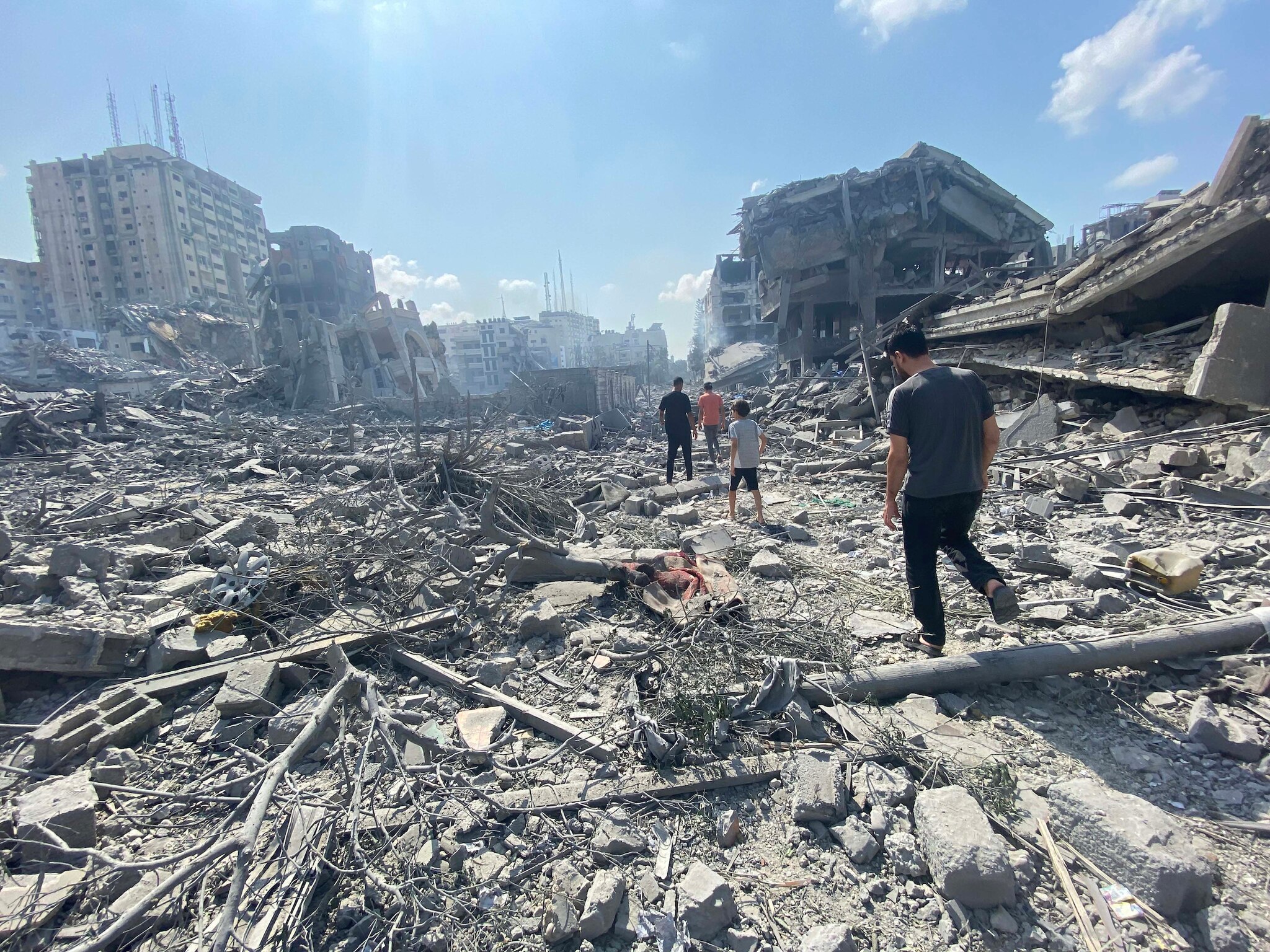
A joint operation by the Israel Defense Forces (IDF), Shin Bet, and Israeli police in the Nuseirat refugee camp of central Gaza on June 8 rescued four hostages—and killed over 200 Palestinians amid pitched gun-battles in a heavy populated area. The rescued hostages had been abducted from the Nova music festival on Oct. 7, and are reported to be in good medical condition. In a public statement, Israeli Prime Minister Benjamin Netanyahu “saluted” those involved in the operation, saying: “We will not relent until we complete the mission and return all our hostages home, both the living and the deceased.”
To date, the IDF has recused seven hostages, recovered 19 bodies, and mistakenly killed three hostages. The IDF has also confirmed the deaths of 41 hostages whose bodies remain in Hamas captivity. A further 105 hostages were released during a temporary ceasefire at the end of November 2023. A total of 116 hostages are still held.
But Gaza’s health ministry said the IDF operation killed at least 274 Palestinians. The president of the Palestinian Authority, Mahmoud Abbas, described the operation as a “gruesome massacre,” according to Palestinian official media. He has instructed Palestine’s envoy to the United Nations to request an emergency session of the Security Council over the matter, and reiterated his call for international intervention to halt the deteriorating humanitarian situation in Gaza.
US National Security Advisor Jake Sullivan commented in response to the news that the US is “supporting all efforts to secure the release of hostages still held by Hamas, including American citizens. This includes through ongoing negotiations or other mean.” He went on to stress that a ceasefire deal “now on the table” would release the remaining hostages, provide “security assurances” for Israel and ensure a increase in humanitarian aid to Gaza:
This deal has the full backing of the United States and has been endorsed by countries from around the world, including the G7, Saudi Arabia, Jordan, Egypt, UAE, and Qatar, as well as the sixteen countries with their citizens still being held by Hamas. They all must be released— now.
From Jurist, June 9. Used with permission.
Photo: WAFA via Jurist





Israeli War Cabinet splits
Benny Gantz followed through on his threat to step down from the War Cabinet June 9, followed one day later by his fellow National Unity Party member (and former IDF chief) Gadi Eisenkot. (CNN, ToI)
Security Council passes resolution endorsing Gaza ceasefire plan
The UN Security Council passed a US-backed resolution endorsing a three-phase permanent ceasefire plan in the Israel-Hamas War, with Russia abstaining. The resolution notes that Israel accepted the proposal, unveiled at the end of May by President Joe Biden, and called upon Hamas to accept it.
The first phase of the plan calls for the return of elderly, women and wounded hostages held by Hamas in exchange for the freeing of Palestinian prisoners, the withdrawal of Israel from “populated areas of Gaza,” and the return of Palestinian civilians.
The second phase would have all other hostages freed, a “permanent end to hostilities” in Gaza, and full Israeli military withdrawal. The third phase includes a reconstruction plan for the Gaza Strip.
In her remarks preceding the vote, US Ambassador Linda Thomas-Greenfield said that “the last eight months have been nothing short of devastating.” Thomas-Greenfield urged the council to seize the opportunity to put an end to the fighting by voting in favor of the resolution and called for Hamas to end the conflict by accepting the peace deal.
Russian UN Ambassador Vasily Nebenzya, who abstained, said that his delegation had a “whole host of questions” about the US-backed resolution, saying that the deal’s particulars were not known to anyone “except to the mediators.” He also claimed that there is no “official clarity” regarding Israel’s support for the deal “given the many statements from Israel on the extension of the war until Hamas is completely defeated.” (Jurist)
Hamas responds to US ceasefire proposal
Hamas responded to a US-backed ceasefire proposal for Gaza, senior Hamas official Osama Hamdan told Al-Mayadeen TV on June 11. While expressing support for the broad outlines of the plan, the organization submitted “a few remarks” aimed at aligning the proposal with its positions.
Hamdan said Hamas seeks amendments to ensure the ceasefire is permanent from the outset and stipulates complete Israeli military withdrawal. A Hamas official told the media that the organization’s response to the US ceasefire plan affirms the aim to end hostilities in Gaza. (Jurist)
The US, of course, has repeatedly vetoed UN resolutions calling for a Gaza ceasefire.